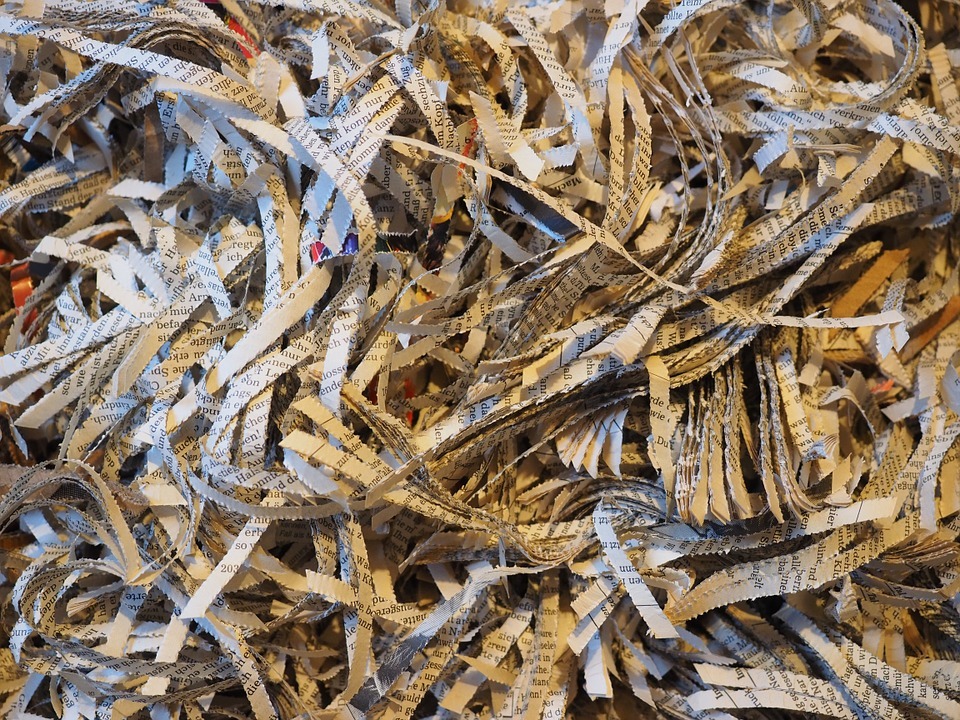Document shredders might sound like a basic office essential on paper, but they hold multiple keys to a company’s privacy in real life. Brick and mortar storeowners have them next to their counters. Banks keep them beside their tellers. Even restaurants place them on the counter for their employees. Still, many files are not shredded, and mission-critical information ends up in the wrong hand. That often becomes the cause of identity theft and raises the potential for legal penalties.
Why Businesses of All Sizes Should Consider Document Shredding
Document shredding can provide multiple advantages to companies including:
Reduction in identity theft
It has been stated multiple times by the FTC (Federal Trade Commission) that leaving important documents unattended is one of the leading causes of identity theft. Theft of sensitive information leaves businesses at the mercy of adversaries who can use it to earn a ransom or take over the identity. If they release that private data, it can tarnish your reputation as well as devastate your financial capacity. Also, a planned theft can leak your personnel’s sensitive data, which could take a toll on your operations if someone impersonates one of your employees to gain unauthorized access. Can your business bear that sort of repercussions? If not, you need a modern document shredder along with a robust information security strategy.
More Free Space
Another great benefit of document shredding is that it enables office owners to get rid of old documents. If you have been working in the same building or premises for quite a while, there’s a good chance that you have accumulated a plethora of old files that are no longer relevant or useful. Shredding them means you increase office space that your staff could utilize more efficiently (more laptops, coffee mugs, and even strategy planning notes). Additionally, it keeps your expenses low as you might not have to get a storage unit later down the road. However, whatever type of shredding you do, double check the document and do it safely.
Minimization of Fire Related Hazards
A few of your personnel can be tasked to shred documents every fortnight or every week instead of waiting for you to accumulate a large batch of documents. This literally means no more bags of paper trash lying near or around your premises. Knowing how easy it is for paper to catch fire, and all the safety and health regulations that surround the slip and fall injuries often caused by paper lying around, document shredding is one thing that should be practised regularly at your office.
Legal Compliance
Securing customer information is the law in many countries. For most companies, important document shredding is utmost important for meeting compliance requisites as well as regulations placed by the HIPPA, FACTA, Sarbanes-Oxley, Maryland PIPA, and Leach-Billey. Being complaint with these organizations will keep your business away from legal problems, as well as give customers peace of mind. Moreover, in addition to avoiding legal repercussions by throwing away unwarranted documents, there is a carbon footprint impact too. Hence, you’d be able to ensure that any paper you shred can be recycled in an eco-friendly manner, while you stay on the positive side of the law.
What Types of Documents Should I Shred?
The trash bin is one of the places where vital documents are at risk the most, except places that local regulation doesn’t allow to enter. But don’t take that as a green light to shred documents at will. Here’s a quick primer on what could be securely shredded when it’s no longer required:
Official company documents: Client and supplier details; information related to R&D (research and development), accounting, HR, executive managers, and more. Additionally, it makes sense to shred printed documents away to keep sensitive information from insiders from being caught by adversaries.
Banking: Financial documents like pre-approved applications for credit, statements that are no longer valid, bounced cheques, and similar files can be shredded without worries.
Misc personal information: Any document that includes miscellaneous details like labels from junk magazines and mails, as well as unsolicited offers that include your address, phone number, and name. Moreover, you can shred any luggage tags and boarding passes for flights that you’ve taken unless you want to keep them for redeeming miles in the future.
Retail: Any brochures and leaflets that you picked up while passing by the store, paper-based shopping bags, and the likes.
Shredders Available for Different Businesses
Keeping unimportant documents in a storage unit is not only time consuming but cumbersome. A high-quality document shredder is just what you need to take care of the disposal. Aside from eliminating the paper, the right shredder will also get rid of other materials like broken seals and paper clips. Here’s a list of different types of shredders that exist:
- Deskside: These work for home users, and even big organizations with centralized devices can uses these small-sized essentials to destroy unsolicited bank statement, personal passwords, junk mail, and confidential memos. If you regularly manage or produce sensitive information, deskside shredders might be worth a consideration.
- Professional: Shredders like these are found in a corporate environment and are often shared between 2-4 people who handle confidential information on a regular basis. You might come across these essentials in small marketing, accounting, or HR departments.
- Commercial: These shredders are suitable for shared workspaces and multiple users. They are often placed near a workgroup printer, in a mailroom or a print-specific room. Commercial shredders, in contrast to professional and deskside shredders, have bigger bin size, quicker speeds and higher throughput.
Bottom Line
You don’t want to take any step that exposes the sensitive information of your company or puts its reputation at risk. As a result, you need to make document shredding a major part of your office spring cleaning. Make sure to destroy anything you no longer need, with a shredder that makes it easy to get the job done.

